Search Results
Showing results 1 to 20 of 24

Build a Solar System
Source Institutions
In this activity, learners make a scale model of the Solar System and learn the real definition of "space." Learners use the online calculator to create an appropriate scale to use as a basis for thei
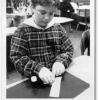
Cylinders and Scale
Source Institutions
In this activity, learners investigate the relative growth of lengths, areas, and volumes as cylinders are scaled up.
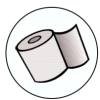
Toilet Paper Solar System
Source Institutions
In this activity, learners build a scale model of the solar system using a roll of toilet paper.

Does Size Make a Difference?
Source Institutions
In this activity on page 15 of the PDF, discover how materials and physical forces behave differently at the nanoscale.
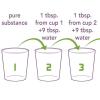
Sniffing for a Billionth
Source Institutions
This is an activity (located on page 4 of the PDF under What's Nano? Activity) about size and scale.

Pea Brain!: Explorations in Estimation
Source Institutions
In this activity, learners use two different techniques to estimate how many little things fit into one bigger thing.
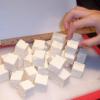
Exploring at the Nanoscale
Source Institutions
This lesson focuses on how nanotechnology has impacted our society and how engineers have learned to explore the world at the nanoscale.

Animals are Amazing!
Source Institutions
In this activity, learners use measurement concepts to make models of what their body parts might look like if they were a snake or a chameleon.

Solar System Bead Distance
Source Institutions
In this astronomy activity, learners create a model of the solar system using beads and string.
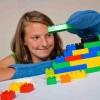
Exploring Tools: Mitten Challenge
Source Institutions
In this activity, learners build a LEGO® structure while wearing mittens. This activity shows learners how difficult it is to build small things when your tools are too big.

What am I?
Source Institutions
In this activity, learners examine nanoscale structures of common things.
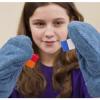
Mitten Challenge
Source Institutions
In this activity, learners try to put together toy bricks—wearing oven mitts on their hands! This activity shows learners how difficult it is to build small things when your tools are too big.

Cleaning Air with Balloons
Learners observe a simple balloon model of an electrostatic precipitator. These devices are used for pollutant recovery in cleaning industrial air pollution.

Chew that Gum
Source Institutions
In this quick activity (page 1 of PDF under SciGirls Activity: Exercise and Memory), learners will investigate what happens to bubble gum when it is chewed for 5-10 minutes.
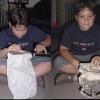
Let's Bag It
Learners observe and discuss a vacuum cleaner as a model of a baghouse, a device used in cleaning industrial air pollution.

Good News: We're on the Rise!
Learners build a simple aneroid barometer to learn about changes in barometric pressure and weather forecasting. They observe their barometer and record data over a period of days.
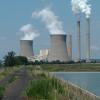
Hot Stuff!: Testing for Carbon Dioxide from Our Own Breath
Learners blow into balloons and collect their breath--carbon dioxide gas (CO2). They then blow the CO2 from the balloon into a solution of acid-base indicator.
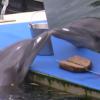
Animal Reflection Response
Source Institutions
In this activity (page 1 of the PDF under SciGirls Activity: Horse Ears), learners observe how an animal responds to its own reflection.
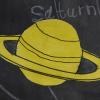
Solar System on a Stick
Source Institutions
Learners build a model of the planets in the solar system. In their model, the planets are spaced in their relative distance from the Sun.

Acid Rain Effects
Learners conduct a simple experiment to model and explore the harmful effects of acid rain (vinegar) on living (green leaf and eggshell) and non-living (paper clip) objects.
